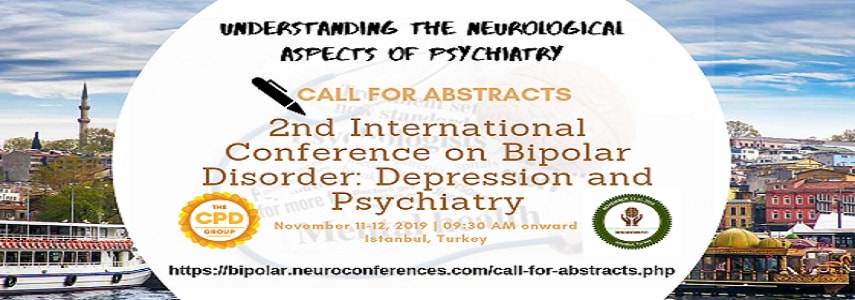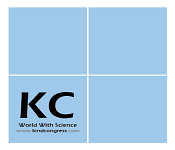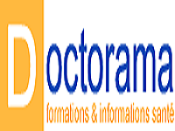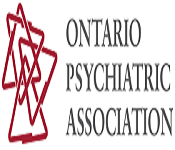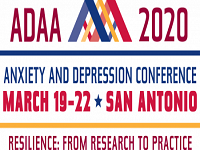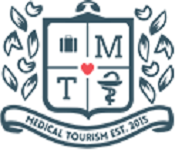Theme: Understanding the neurological aspects of psychiatry
Bipolar Neuro 2019
- About Conference
- Sessions/Tracks
- Market Analysis
- Related Conferences
- Related Associations and Societies
- News and Updates
- Past Conference Report
Bipolar Neuro 2019
On behalf of Organizing Committee, we invite all the participants from all part of the world to attend the Bipolar Neuro 2019 entitled “2nd International Conference on Bipolar Disorder: Depression and Psychiatry” scheduled during November 11-12, 2019 at Istanbul, Turkey.
Bipolar Neuro 2019 is a conference dedicated to Psychiatrists, Neurologists, Neuropsychiatrists and Psychological clinical and medical researchers and consultants with the theme “Understanding the neurological aspects of psychiatry”
The goal of Bipolar Neuro 2019 is to deliver an extraordinary event for the exchange of ideas and authoritative views by leading scientists which covers the entire spectrum of research in Neurology, Psychiatry and Mental Health and share the cross-cultural experiences of various treatment procedures.
For many years, the branch of Neurology and Psychiatry were believed to be a part of a single branch of medicine as both the fields involve the study of the brain. It was later in the 20th Century that both the fields parted their ways. Neurology deals with the cognitive and behavioural abnormalities of the brain whereas Psychiatry deals with the disorders associated with mood and thoughts mainly “functional” without any structural basis.
However, It is well known that the patients with neurological disorders such as Parkinson’s disease and stroke manifest depression and dementia and similarly, with the recent advances in the medical imaging technology, it has been suggested that the psychiatric disorders such as schizophrenia involves structural abnormalities and hence, abnormal brain function. Though the fields have advanced and drifted afar there is much more that brings them together as they share the origin and have the same basis of neuroscience.
Why to attend?
We strive to make Bipolar Neuro 2019 a success, with your support and high-quality talks from Psychiatrists as well as Neurologists and aims to clear the view on the wall between these two fields. During the conference, we assure you that you will experience world class facilities and hospitality at the conference.
Bipolar Disorder: Depression and Psychiatry is a unique forum to bring together worldwide distinguished academics in the field of Psychology and Psychiatry, Neurologists, Neuropsychiatrists, Mental Health Consultants, Psychiatry researchers, public health professionals, scientists, academic scientists, industry researchers, scholars to exchange about state of the art research and technologies. The Conference will feature many exciting academic programs including multiple panels, workshops, affinity group lunches, paper presentations, and scientific sessions on psychiatry, psychology as well as neuroscience from all over the country.
Target Audience:
- Psychiatrists
- Neurologists
- Physicians
- Psychologists
- Neuropsychiatrists
- Specialists
- Researchers
- Healthcare professionals
- Professors
- Mental health Consultants
- Neurosurgeons
- Industrial Experts
- Mental health Nurses
- Lecturers and Students from Academia
- Students from Academia in the research of Psychology
Conference Sponsor and Exhibitor Opportunities
The Conference offers the opportunity to become a conference sponsor or exhibitor.
Track 1: Bipolar Disorder
Bipolar disorder also known as manic depression causes elevated levels of mood and sometimes leads to symptoms of psychosis. It even causes depression that may affect the person’s personal as well as professional life thus causing a disaster. The reasons for this disorder are generally not known but environmental and genetic factors do play a vital role. The environmental factors can be a history of childhood abuse and prone to depression. However genetic factors also have a role in bipolar disorder but in very few cases. The elevated levels of mood are generally characterized as mania or hypomania. It is not just one disease but includes subcategories such as Bipolar I, Bipolar II, Cyclothymia, etc., referred to as Bipolar Spectrum Disorders. So, strict adherence to medications is necessary to help keep episodes to a minimum. The symptoms of mania can be as follows:
- Feeling happy for a very long period
- Decreased sleep
- Restlessness
- Easily distracted
- Engaging in risky behaviour, such as having impetuous sex, gambling, or excessive spending.
With the recent advances in Neuroimaging techniques, the biological factors that lead to Bipolar Disorder have been trying to uncover. The Number of abnormalities in amine neurotransmitters and critical signal transduction pathways has been observed in many findings.
Track 2: Types of Bipolar Disorder
Bipolar disorder is associated with the episodes of mood swings that range from manic highs to depressive lows. There are several types of Bipolar disorder and all the type involves both the episodes of mania and depression.
- Bipolar I disorder: also known as manic depressive disorder or unipolar disorder. A person suffering from bipolar one must have one manic episode (a few weeks to a few months) in their lifetime. A manic episode is a period of highly or abnormally elevated mood and energy which results in abnormal behaviour. They also suffer from depression episodes that follow shortly after the severe manic episode and lasts for a few days. The manic episodes sometimes trigger a psychotic episode in which an individual lacks its ability to understand reality.
- Bipolar II Disorder: In this form of psychiatric disorder, an individual must have depressive episodes followed by hypomanic episode. Hypomania is an episode of elevated mood and behaviour. Though it is not as extreme as a manic episode, it is above the normal mood and behaviour. Bipolar II Disorder is mainly characterized by frequent depressive episodes and associated with a greater risk of suicidal thoughts and behaviour.
- Cyclothymia: It is a milder version of bipolar disorder that consists of cyclic mood swings. A person with a cyclothymic episode usually appears normal as they do not undergo any severe manic episode or major depression.
- Mixed episodes: In this condition, an individual simultaneously experiences characteristic of both mood poles- depression and mania- in a rapid sequence.
- Bipolar Spectrum: In this type of condition, a person experiences the characteristics of bipolar disorder along with the other types of mental disorders that involve depression or mood swings.
Track 3: Treatment of Bipolar Disorder
Bipolar Disorder is a mental disorder that causes the extreme change in the moods of an individual from being too excited (manic episode) to a depressed phase with the normal mood states in- between. Many pharmacological and psychotherapeutic techniques are already present for the treatment of the moods of the bipolar disorder, and also today, many researches are going on all around the world for exploring the new possibilities. The treatment commonly includes the psychotherapy (such as Cognitive Behavioural Therapy) as well as the Medications. Medications are an essential part of the treatment for Bipolar Disorder. This helps to keep the periods or the moods in balance enabling the person to live a normal life. They do not cure the disorder however helps to stabilize the condition. Numbers of medication used to treat Bipolar Disorder. Some of them help to fight the manic episodes and others prevent the episodes of depression. As the medications for bipolar are very powerful drugs, it should always be taken according to the doctor’s recommendation for the given period of time. The abrupt withdraw of medicine without Doctor’s approval can be very dangerous.
-
Mood Stabilizers (such as Lithium)
-
Antipsychotics (Olanzapine)
-
Antidepressant drugs
-
Cognitive Behavioural Therapy
Track 4: Psychiatry
Psychiatry is the branch of medicine that deals with diagnosis, prevention and treatment of mental disorders, usually those requiring medication. The various behaviours, moods, cognition and perception which are harmfully adapted included in the mental disorders. The Interdisciplinary field of psychiatric research combines biological, social and psychological perspective of mental disorders in order to understand its nature and treatment. A psychiatrist is trained medical doctors and specialists who deal with these disorders and are qualified to assess both mental and physiological aspects of the psychiatric disorders. As they are physicians, they perform medical laboratory and psychological tests such as case history and mental status examination, evaluate and then work with patients to develop psychiatric treatment plans.
Track 5: Psychology
Psychology is the scientific study of human mind and its behaviour and function. Unlike psychiatry and neuroscience, psychology involves the study of awareness and unconsciousness and feelings and thoughts and does not involve medication. Psychologists are the practitioners or researchers who tend to understand the role of mental functions in individual and social behaviour, while also exploring the physiological and biological processes that underlie cognitive functions and behaviours. There are many types of psychology and psychologists such as:
-
Aviation Psychologists
-
Biopsychologists
-
Clinical Psychologists
-
Cognitive Psychologists
-
Community Psychologists
-
Comparative Psychologists
-
Consumer Psychologists
-
Counselling Psychologists
-
Cross-Cultural Psychologists
-
Educational Psychologists
-
Environmental Psychologists
-
Health Psychologists
-
Military Psychologists
-
Personality Psychologists
-
School Psychologists
-
Social Psychologists
Track 6: Neuroscience
Neuroscience is a multidisciplinary science that deals with the structural and functional study of the human brain and nervous system. It is a combination of evolution, development, cellular and molecular biology, physiology, anatomy and pharmacology and psychology to understand the fundamentals of nervous system and brain. Neuroscience is a discipline where the psychology combines with the biology for the further understanding of the underlying role of the brain in physical, psychological and neurological health conditions. With the advances in the field of medical imaging, it has become one of the most quickly emerging fields in science. The expert researchers are called Neuroscientists who research on the behaviour of the nervous system including the brain, spinal cord and nerve cells and develop drugs and treatments for brain and neurological disorders.
Some of the major branches of Neuroscience include:
-
Behavioural neuroscience
-
Cellular neuroscience
-
Clinical neuroscience
-
CNS neuroscience
-
Cognitive neuroscience
-
Computational neuroscience
-
Evolutionary neuroscience
-
Molecular neuroscience
-
Developmental neuroscience
-
Neuroimaging
-
Neuropsychology
-
Neuropsychiatry
Track 7: Mental Health
Mental Health is the psychological, emotional and social condition of somebody who is working at an acceptable level of passionate and behavioural change. It incorporates an individual's capability to understand life and create harmony between standard life exercises and endeavours to accomplish mental flexibility. It is essential at every part of life, starting with childhood and adolescence through adulthood.
Many factors contribute to mental health problems, including:
- Biological factors, such as genes or brain chemistry
- Life experiences, such as trauma or abuse
- Family history of mental health problem
Half of the emotional well-being conditions begin by age fourteen and also the remainder of the conditions produce by age 24. More than 200 sorted types of mental illness conditions are available. Prevention of mental disorder at a youthful age may altogether diminish the hazard that a child will experience the ill effects of it in the later life.
-
Women’s Mental Health
-
Mental Health Rehabilitation
-
Child Mental Health
-
Mental Health Counselling
-
Mental Health and Humanoid Resilience
-
Forensic Mental Health
-
Mental Health care and education
-
Mental Health Case Management
Track 8: Neurology
Neurology is a branch of medicine concerning the diagnosis and treatment of the disorders of the central and peripheral nervous system. The brain and the spinal cord makes Central Nervous System (CNS) whereas the Peripheral Nervous System includes all the other neural elements including eyes, ears, skin and the other sensory receptors. A Neurologist is a medical doctor or physician, who specializes in neurology and expertise to investigate, diagnose and treat neurological disorders. Neurology and psychiatry are closely related fields, and for many years they were considered as one branch because neurological disorders can often manifest as, and get misdiagnosed as psychiatric ones. For example, neurological disorders such as Parkinson’s disease and stroke manifest depression and dementia.
Track 9: Neuropsychiatry
Neuropsychiatry is a hybrid branch of medicine that borderlines the disciplines of psychiatry and neurology. Though psychiatry and neurology have subsequently drifted afar and practiced separately, they have the same origin and common training. The branch of neuropsychiatry works as a bridge between these two fields and helps to understand the relation of brain and mind. Some mental illnesses such as Eating Disorders, Bipolar Disorder, Schizophrenia, etc., have been found to have some neuropathology.
Track 10: Neurocognitive Disorders
Neurocognitive disorders consist of a group of conditions that can be described as a decreased or impaired mental function as a result of a medical illness other than psychological conditions. Earlier, these conditions were named as Organic Brain Syndrome, which is now replaced by the term neurocognitive disorders. There are various causes that lead to neurocognitive disorders, such as:
- Brain injury caused by trauma
- Breathing conditions
- Cardiovascular diseases such as dementia due to stroke and heart infections
- Degenerative disorders
- Dementia due to metabolic causes (kidney and liver diseases)
- Drug and alcohol related conditions
- Cancer can also lead to neurocognitive disorders
Track 11: Advances in Psychiatric Disorder Treatment
With the recent global recognition of the importance of mental illnesses, psychiatry has been put firmly on the international health agenda. The World Health Organization has assessed that neuropsychiatric disorders and suicide represent 12.7% of the overall burden of illness. Major depression, bipolar disorder, schizophrenia, alcohol misuse, and obsessive-compulsive disorder account for 5 of the 10 leading causes of disability in underdeveloped and developing countries. In developed countries, dementia is the third most common neurocognitive disorder. Over the past many years the sciences have evolved so well that there are treatment and cure for almost all the disorders and diseases. Innovative treatments of mental health and psychiatric disorders have emerged in both private and public sector due to the expansion in research. Most treatment strategies for psychological illness can be categorized as either somatic (physical) or psychotherapeutic. Somatic treatments include drugs, electroconvulsive therapy, and other therapies that stimulate the brain Trans cranial. Psychotherapy, behaviour therapy techniques and hypnotherapy are the treatment methods included in Psychotherapeutic approach.
Track 12: Clinical Psychology
Clinical psychology is one of the major Speciality area with psychology that carries on-going and inclusive mental and behavioural health care for person’s families, cultures, and varied populations It is a department in breadth — one that is mostly comprehensive of severe psychopathology — and marked by extensiveness and integration of awareness and skill from a comprehensive array of disciplines within and outside of psychology proper. The possibility of clinical psychology includes all ages, several diversities and different systems.
-
Counselling Psychology
-
Child and Adolescent Clinical Psychology
-
Methods of Clinical Psychology
-
Clinical Psychology Instruments
-
Clinical Behavioural Disorders
-
Social Psychology
Track 13: Epilepsy
Epilepsy is a very common neurodegenerative disorder that affects the part of brain. When someone having epilepsy, it means they must have a convergence to epileptic seizures. There are different types of seizure. The condition of having seizure depends on the portion of their brain which is affected. During some types of seizure, the person may remain totally aware and conscious about their surroundings and with other types they may lose consciousness. They may have uncommon sensations, feelings or movements. Or they may go unconscious, fall and jerk. The main treatment for epilepsy is epileptic medicines. These are called anti-epileptic drugs or AEDs. The medicine may don’t cure epilepsy, but supports to stop or decrease the number of seizures.
-
Hemiplegia & Epilepsy
-
Epilepsy Diagnosis Tests
-
Clinical Case Reports of epilepsy
-
Disease Associated With Epilepsy
-
Treatment for Prevention of Epilepsy
Track 14: Depression & Anxiety Disorders
Anxiety can be defined as an overreaction to a situation where it doesn’t need any focus. Anxiety includes uneasiness and worry accompanied by muscular tension, fatigue and lack of concentration. Hence when it gets out of control it is termed as an anxiety disorder. Depression is also considered as one of the symptoms of bipolar disorder. It is a feeling of low mood during activity. It was also found that the increase in social media is the major cause of depression. It includes:
- Feeling sad for a longer period
- Being alone and away from the peer group
- Losing interest in hobbies
- Change in appetite
- Fatigue and low energy levels
- Poor decision making and low confidence levels
- Suicidal thoughts are the major effect
Track 15: Addictive Disorders & Substance Abuse
Addiction is a complex chronic disease of mind manifested by compulsive substance use despite harmful consequence. It takes time to develop an addictive disorder. It includes substance abuse and dependence. The biological cause that seems to be responsible for the addictive disorder is related to reward pathways in the brain that provides feeling good chemicals and positive feeling to reward substance abuse. The long term changes during the disorder contribute an inability to consistently abstain, impedance in behavioural control, desiring and lessened acknowledgment of noteworthy issues with one's practices and interpersonal connections, and a broken passionate reaction. The addictive disorder is a result of the person ingesting a substance, such as alcohol or cocaine, or engaging in an activity, like gambling, that is pleasurable but is also compulsive and interfering with the person's responsibilities at home or at work. The person usually is not aware of their out of control behaviour. Without treatment or not involving in recovery exercises, may lead to disability or early death.
-
Substance Abuse
-
Substance Dependence (Alcohol, Marijuana, Hallucinogens)
-
Chemical dependence (drugs or alcohol)
Track 16: Cognitive Behavioural Therapy
Cognitive Behavioural Therapy is a form of psychotherapy or talk therapy in which the therapist (mental health counsellor or psychotherapist) and the patient work together as a team to identify and deal with the problems by changing the way of thinking and the behaviour. The therapy is based on the interconnection among thoughts, feelings, actions and physical sensation as it is said: “What you think is how you act”. Most commonly, this therapy is prescribed for anxiety and depression but is also useful for other mental and physical health problems. Cognitive-behavioural therapy is action-oriented, rational, and practical and talks about your current issues rather than the data from the past, thus, improving the state of mind on a daily basis. It is short-term focused psychotherapy appropriate for all ages, including children, adolescent, and adults.
Track 17: Psychiatry & Mental Health Nursing
Psychiatric nursing or mental health nursing is the specialty of nursing specializing in mental health. They care for people of all ages with mental illness or mental distress, such as schizophrenia, bipolar disorder, psychosis, depression or dementia. They expertize on building therapeutic relationship between the patient and doctor, trained for psychological therapies, highly able to deal with the challenging behaviours of the patients and are qualified for the administration of psychiatric medicine. Often, people do not consider mental illnesses as true medical conditions by the public. Psychiatric stigmatization is the inappropriate and erroneous association of mental illness with something disgraceful or shameful. Psychiatric nurses help patients to overcome their mental disorders and the stigma associated with it so they can live a better life. Being a mental health nurse can be very rewarding, but it is a stressful and emotionally draining job as well. They often play a significant role in the psychiatric care process.
Track 18: Regulation & Case reports
Psychiatric case reports contain information from and about the patient. It reflects the familiarity of the author with psychiatric technical terms in describing the symptoms, the status and in illustrating the illness. Case report demonstrate that the examiner has basic information’s to express symptoms according the investigation of the patient, is able to make differential diagnosis between separate illnesses and can establish a therapeutic plan.
Bipolar Neuro 2019 welcomes attendees, presenters, and exhibitors from all over the world to Istanbul, Turkey. We are delighted to invite you all to attend and register for the 2nd International Conference on Bipolar Disorder: Depression and Psychiatry scheduled for November 11-12, 2019 in Istanbul, Turkey. The organizing committee is gearing up for an exciting and informative conference program including plenary lectures, symposia, workshops on a variety of topics, poster presentations and various programs for participants from all over the world. We invite you to join us at Bipolar Neuro 2019 where you will be sure to have a meaningful experience with scholars from around the world. All the members of Bipolar Disorder: Depression and Psychiatry organizing committee look forward to meeting you at Istanbul, Turkey.
For more details please visit: https://bipolar.neuroconferences.com/
Importance and Scope of Bipolar Neuro 2019
Psychiatric mental health is a specialized area of practice committed to promoting mental health through the assessment, diagnosis, and treatment of human responses to mental health problems and psychiatric disorders. Psychiatric mental health, health care profession, employs a purposeful use of self as its art and has a wide range of psychosocial and neurobiological theories and research evidence as of its science. Psychiatric mental health provides comprehensive, patient-centered mental health and psychiatric care and outcome evaluation in a variety of settings across the entire continuum of care. Essential components of this specialty practice include health and wellness promotion through identification of mental health issues, prevention of mental health problems and care and treatment of persons with psychiatric disorders.
In Turkey, neuropsychiatric disorders are estimated to contribute about 17.0 % of the global burden of disease
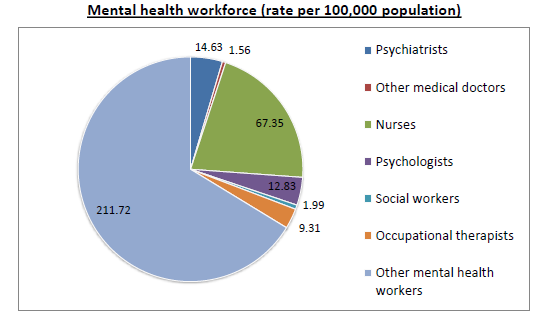
Related Conferences:
- 30th International Conference on Public Mental Health and Neuroscience December 09-10, 2019 Dubai, UAE
- 31st International Conference on Psychiatry and Mental Health October 24-25, 2019 Helsinki, Finland
- 2nd International Conference on Addiction & Psychiatry June 10-11, 2019 Helsinki, Finland
- 2nd International Conference on Neurology and Neurosurgery December 05-06, 2019 Abu Dhabi, UAE
- 2nd World Brain Congress December 02-03, 2019 Milan, Italy
- 26th Cognitive Neuroscience Congress December 9-10, 2019 Dubai, UAE
- 30th International Conference on Public Mental Health and Neuroscience December 09-10, 2019 Dubai, UAE
- 2nd World Depression Congress March 16-17, 2020 Dubai, UAE
- 32nd Clinical Neuroscience and Neurogenetics Conference November 19-20, 2019 Istanbul, Turkey
- 14th Annual Conference on Dementia and Alzheimers Disease November 18-19, 2019 Johannesburg, South Africa
- 6th International Conference on Depression, Anxiety and Stress Management April 25-26, 2019 London, UK
- 8th World Congress on Addictive Disorders & Addiction Therapy May 09-10, 2019 London, UK
- 28th International Conference on Psychiatry & Psychology Health May 06-07, 2019 Amsterdam, The Netherlands
- 2nd International Conference on Addiction & Psychiatry June 10-11, 2019 Helsinki, Finland
- 29th Euro Congress on Psychiatrists and Psychologists June 10-11, 2019 Berlin, Germany
Major Associations around the Globe
- American Psychiatric Association
- European Federation of Psychiatric Trainees (EFPT)
- American Board of Clinical Neuropsychology(ABCN)
- International Society for Bipolar Disorders
- Alternative Federative des Associations de Psychiatry(ALFAPSY)
- British Neuropsychiatry Association(BNA)
- World Psychiatric Association
- Anxiety and Depression Association of America, ADAA
- Comprehensive Psychiatric Associates
- Associations First Ltd
Around 24 associations of Psychiatry & Neuroscience
- Comprehensive Psychiatric Association
- International Behavioral Neuroscience Society
- British Neuroscience Association
- Kentucky Psychiatric Association
- Psychiatric Association of Turkey
- Turkish Association for Child and Adolescent Psychiatry
- Neuroscience Society of Turkey
- Brain Research Society (Turkey) (BArD)
- International Youth Neuroscience Association, Turkey
- Ohio Psychiatric Physicians Association
- Ohio Psychological Association
- Ohio - American Psychiatric Nurses Association
- Canadian Association for Neuroscience
- Neuroscience Research Australia (NORD)
- World Association for Dynamic Psychiatry (WADP)
- Bulgarian Society of Neurology Stroke Association
- Epilepsy Therapy Project and Exceptional Parent Magazine
- Genesis Psychology Associates
- Child Psychiatry Associates
- Associates For Behavioral Health
- Madison Psychiatric Associates
- Psychiatric Associates of Iowa City
- Singapore Neuroscience Association (SNA)
- The Japanese Society of Psychiatry and Psychology
Related Societies:
- World Psychiatry Association
- American Psychiatric Association
- European Psychiatric Association
- American Psychological Association
- National Alliance on Mental illness
- Society for Mental health Research
- International Society for Bipolar Disorders
- Neuroscience Society of Turkey
- Australian Clinical Psychology Association
- American Society of Addiction Medicine
- National Institute on Alcohol Abuse and Alcoholism (NIAAA)
- National Rehabilitation Association (NRA)
- Society of British Neurological Surgeons(SBNS)
- American Association of Psychotherapists
- British Neuropsychiatry Association(BNA)
- Depression Research Association
- World Federation for Mental Health
- Ohio - American Psychiatric Nurses Association
- Indian Epilepsy Association
- British Association for Behavioural and Cognitive Psychotherapies
Other Related Socities:
Middle East:
Affective Disorder Clinic of Isfahan, Iran | Hafez Psychiatry Clinic | Imam Hossein Medical Center | Institute of Psychiatry, Tehran, Iran | Roozbeh Psychiatric Hospital | Mediterranean Neuroscience Society | South African Depression and Anxiety group (SADAG) | Brain Research Society (Turkey) (BArD) | United Colors of Bipolar
USA:
American Academy of Neurology | Movement Disorders Society | Parkinson Society Canada | The International Parkinson and Movement Disorder Society | Canadian Movement Disorders Group | Bachmann-Strauss Dystonia and Parkinson Foundation | Parkinson’s Action Network, American Society of Neuro rehabilitation | Canadian Stroke Consortium | Association of Counselling Psychologists | American Psychological Association | Association for Psychological Science | Brain and Spine Foundation | American Neuropsychiatric Association | Association of Psychology and Psychiatry for Adults and Children | Alzheimer’s Association | American Academy of Sleep Medicine | American Parkinson’s Disease Association | Parkinson’s Disease Foundation | Stroke Association | American Association of Neurological Surgeons | American Society for Stereotactic and Functional Neurosurgery | Neuropathy Association & Nevus Outreach | Brain Aneurysm Foundation and Brain Injury Association of America | Brain Injury Resource Center & Brain Trauma Foundation
Europe:
European Psychiatric Association | Federation of European Neuroscience Societies | European Sleep Research Society | Society for Neuroscience | British Neuroscience Association | Belgian Society for Neuroscience | Brain Research Society of Finland | Croatian Society for Neuroscience | Danish Society for Neuroscience | Dutch Neuro-federation | Georgian Neuroscience Association | Spanish Psychological Association | Swedish Psychological Association | Bulgarian Society of Neurology | Spanish Society of Neurology | British Psychological Association | European Huntington Association | European Neurological Societies | UK Parkinson’s Action Network | European Neurological Society | European Parkinson’s Disease Association | Danish Movement Disorder Society | Italian Society for the study of Parkinson Disease
Asia-Pacific:
Psychiatrists of Association of Nepal | Philippine Psychiatric Association | Portuguese Association of Psychiatry | Romanian Psychiatric Association | Russian Society of Psychiatrists | Neurological Society of India | Movement Disorder Society of Australia | Parkinson’s Disease and Movement Disorders Society of India | Austrian Parkinson’s Disease Society | Movement Disorder Society of Japan
Keep your Mind healthy and Stress free at Work
Almost about 300 million people globally, suffer from mental health problems such as depression, anxiety, substance abuse and many more mental illnesses due to negative work environment and work stress. This results into absenteeism and lost productivity.
Tips to reduce stressful conditions:
- Do not work overtime unnecessarily
- Take necessary breaks
- Go for holidays
- Give time to your family and friends
- Allocate time to do the things you enjoy
Healthy brain with Mushrooms intake
It has been observed that eating mushrooms reduces the risk for mild cognitive impairment (M.C.I.), a type of memory impairment that is often a precursor of Alzheimer’s disease as it has a potential preventive measure to slow cognitive decline and neurodegeneration in the elderly. Some other age-related health conditions such as loss of short-term memory and visual recognition memory, seems to be supported effectively by adding the mushrooms in their food. An amino acid called ergothioneine (ET) that has been found in almost all the varieties of Mushrooms, is associated with this correlation. ET is a unique antioxidant and anti-inflammatory compound that we are unable to synthesize. The level of ET decreases with the age and results in cognitive dysfunction. Thus, it is advised to have mushroom intake in your food and thus, delay the onset of cognitive dysfunctions in later years. Some of the varieties of Mushroom with health benefits include Lion’s Mane, Shiitake, golden mushrooms, oyster mushrooms, white button mushrooms, dried mushrooms, and canned button mushrooms.
ME Conferences takes a great honor in announcing the successful completion of International Conference on Bipolar Disorder that was held during November 05-06, 2018 in Abu Dhabi, UAE. It has received a benevolent response from all over the world. This has been conducted with the theme of Innovating combats towards Depression & Psychiatry and aimed for promotion of the developments of new perceptions and ideas for exploring the high level of knowledge reached by the scientific community on Mental Health & Psychiatry. The extremely illustrious conference hosted by ME Conferences was marked with the attendance of young and brilliant researchers, clinicians, business delegates and talented student communities.
This annual conference was carried out through various sessions, workshops and discussions on mental health, psychoeducation and different therapies and medications for bipolar disorder and brought together eminent scientists, Psychiatrists, Psychotherapist Neurologist, Neuroscience researchers, health care professionals, University professors, Neuroscience professionals from all around the World. The meeting provided an opportunity for an open and animated sharing of ideas and experiences.
The conference witnessed an amalgamation of peerless speakers, who enlightened the audience with their enviable research knowledge and on various alluring topics related to the field of Psychiatry and Psychology. Some of the eminent personalities at the conference were Kadhim Alabady, Dubai Health Authority, UAE; Basmah Albashrawi, Alamal Complex for Mental Health, Saudi Arabia; Muhammad Adnan Hafeez, Dr Sulaiman Al Habib Medical Group, Saudi Arabia; Rasha Shehadi, Novomed Psychiatry and Neurology, UAE; Shaheda Tabassum, Institute of Behavioral and Management Science, UAE; Sholeh Toobaee, Iranian Hospital, UAE; Sameera Hassan Abkar, King AbdulAziz University, Saudi Arabia.
We once again thank you all for the enormous exquisite response. We sincerely thank the Organizing Committee Members, Editorial Board Members of International Journals, Participants, Attendees and Media Partners for their gracious presence and generous support, without which the conference would not have been possible. This inspires us to continue organizing events and conferences for furthering the Neuroscience Research. ME Conferences, therefore, is glad to announce its Bipolar 2019 on November 11-12, 2019 in Istanbul, Turkey.
Mark your calendars for the upcoming meeting; we are hoping to see you soon!
Let us meet again at the 2nd International Conference on Bipolar Disorder: Depression and Psychiatry in Istanbul, Turkey.
Conference Highlights
- Bipolar Disorder
- Types of Bipolar Disorder
- Treatment of Bipolar Disorder
- Psychiatry
- Psychology
- Neuroscience
- Mental Health
- Neurology
- Neuropsychiatry
- Neurocognitive Disorders
- Advances in Psychiatric Disorder Treatment
- Clinical Psychology
- Epilepsy
- Depression & Anxiety Disorders
- Addictive Disorders & Substance Abuse
- Cognitive Behavioural Therapy
- Psychiatry & Mental Health Nursing
- Regulation & Case reports
- Factors affecting bipolar disorder
- Schizophrenia
To share your views and research, please click here to register for the Conference.
To Collaborate Scientific Professionals around the World
| Conference Date | November 11-12, 2019 | ||
| Sponsors & Exhibitors |
|
||
| Speaker Opportunity Closed | |||
| Poster Opportunity Closed | Click Here to View | ||
Useful Links
Special Issues
All accepted abstracts will be published in respective Our International Journals.
Abstracts will be provided with Digital Object Identifier by



